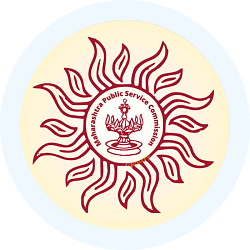MPSC (Maharastra) Exam > MPSC (Maharastra) Videos > MPSC Exam Preparation in Marathi (State PCS) > Marathi - Salient Features of Panchayati Raj ; Indian Polity for MPSC UPSC Optional Laxmikant NCERT
Marathi - Salient Features of Panchayati Raj ; Indian Polity for MPSC UPSC Optional Laxmikant NCERT Video Lecture | MPSC Exam Preparation in Marathi (State PCS) - MPSC (Maharastra)
FAQs on Marathi - Salient Features of Panchayati Raj ; Indian Polity for MPSC UPSC Optional Laxmikant NCERT Video Lecture - MPSC Exam Preparation in Marathi (State PCS) - MPSC (Maharastra)
| 1. What are the salient features of Panchayati Raj in India? |  |
Ans. The salient features of Panchayati Raj in India are as follows:
- Decentralization of power: Panchayati Raj system aims to decentralize power by transferring decision-making authority from higher levels of government to the local level.
- Three-tier structure: Panchayati Raj operates through a three-tier structure comprising the village level (Gram Panchayat), intermediate level (Panchayat Samiti), and district level (Zilla Parishad).
- Direct elections: Members of Panchayati Raj institutions are elected through direct elections by the eligible voters in the respective areas.
- Reservation of seats: Panchayati Raj ensures the reservation of seats for Scheduled Castes, Scheduled Tribes, and women to promote social inclusion and political representation.
- Functioning as self-government: Panchayati Raj institutions have the power to make decisions on various local issues such as rural development, infrastructure, education, health, and social welfare.
- Financial powers: Panchayati Raj institutions are entrusted with financial powers, including collection of taxes, preparation of budgets, and implementation of development schemes.
| 2. What is the significance of Panchayati Raj in Indian polity? |  |
Ans. Panchayati Raj holds great significance in the Indian polity due to the following reasons:
- Grassroots democracy: It promotes the concept of grassroots democracy by bringing governance closer to the people at the village level.
- Empowerment of local communities: Panchayati Raj empowers local communities by giving them the opportunity to participate in decision-making processes and contribute to the development of their areas.
- Social inclusion: The reservation of seats for marginalized sections, such as Scheduled Castes, Scheduled Tribes, and women, ensures their representation and participation in the political process.
- Efficient administration: Panchayati Raj institutions help in efficient administration and delivery of services at the local level as they are familiar with the local needs and aspirations.
- Accountability and transparency: By bringing governance closer to the people, Panchayati Raj ensures greater accountability and transparency in the functioning of local governments.
- Rural development: Panchayati Raj plays a crucial role in addressing rural development issues, such as infrastructure, agriculture, education, healthcare, and poverty alleviation.
| 3. What is the role of Panchayati Raj in the MPSC (Maharashtra Public Service Commission) and UPSC (Union Public Service Commission) exams? |  |
Ans. The role of Panchayati Raj in the MPSC and UPSC exams is to test the candidates' knowledge and understanding of the functioning, structure, and significance of Panchayati Raj in the Indian polity. The exams may include questions related to the salient features of Panchayati Raj, its three-tier structure, reservation of seats, financial powers, and its role in grassroots democracy and rural development. Candidates are expected to be aware of the constitutional provisions, acts, and policies related to Panchayati Raj and its implementation in different states of India.
| 4. How can Laxmikant's book on Indian Polity help in preparing for MPSC and UPSC exams? |  |
Ans. Laxmikant's book on Indian Polity is a comprehensive guide that covers various aspects of the Indian political system, including Panchayati Raj. It provides detailed explanations of constitutional provisions, governance structures, and the functioning of different institutions in India. The book is widely used by aspirants preparing for the MPSC and UPSC exams as it not only covers the basic concepts but also includes advanced topics. It contains relevant information, case studies, and practice questions that help candidates in understanding the subject thoroughly and preparing for the exams effectively.
| 5. How can NCERT books be useful for studying Indian Polity for MPSC and UPSC exams? |  |
Ans. NCERT books are considered as the foundation for building a strong knowledge base for the MPSC and UPSC exams, including the subject of Indian Polity. The NCERT books on political science provide an in-depth understanding of the basic concepts, principles, and institutions of the Indian political system. They are written in a simple language and cover the syllabus prescribed by the respective exam boards. By studying NCERT books, candidates can grasp the fundamental concepts of Indian Polity, which can later be supplemented with advanced reference books like Laxmikant's book for a comprehensive preparation.

|
Explore Courses for MPSC (Maharastra) exam
|

|
Signup for Free!
Signup to see your scores go up within 7 days! Learn & Practice with 1000+ FREE Notes, Videos & Tests.
Related Searches

















